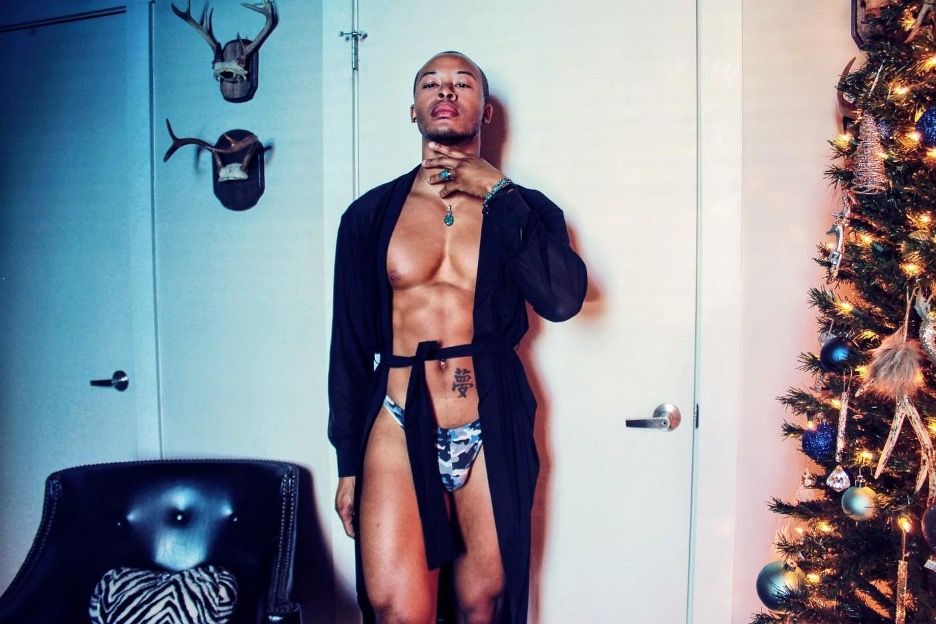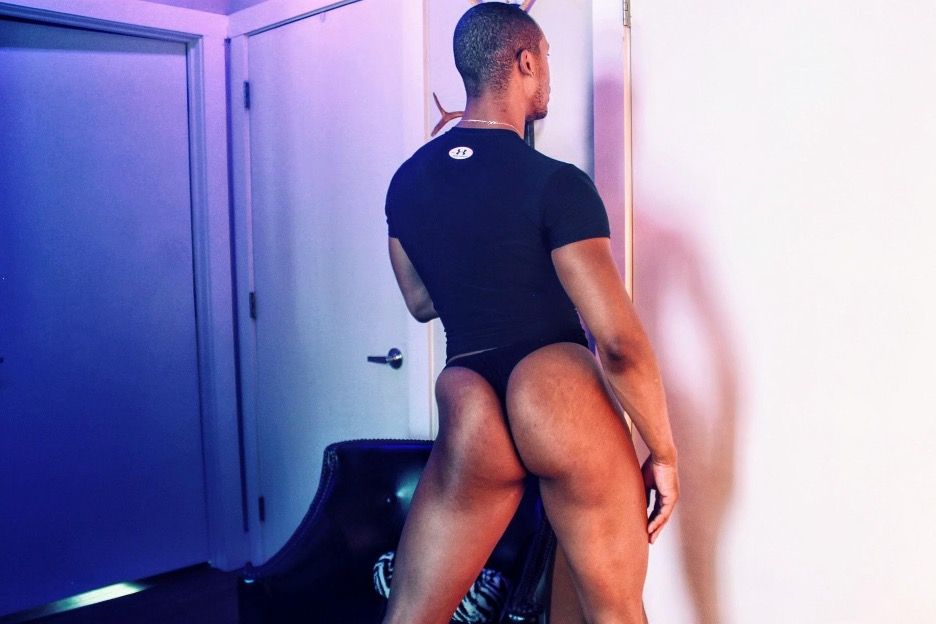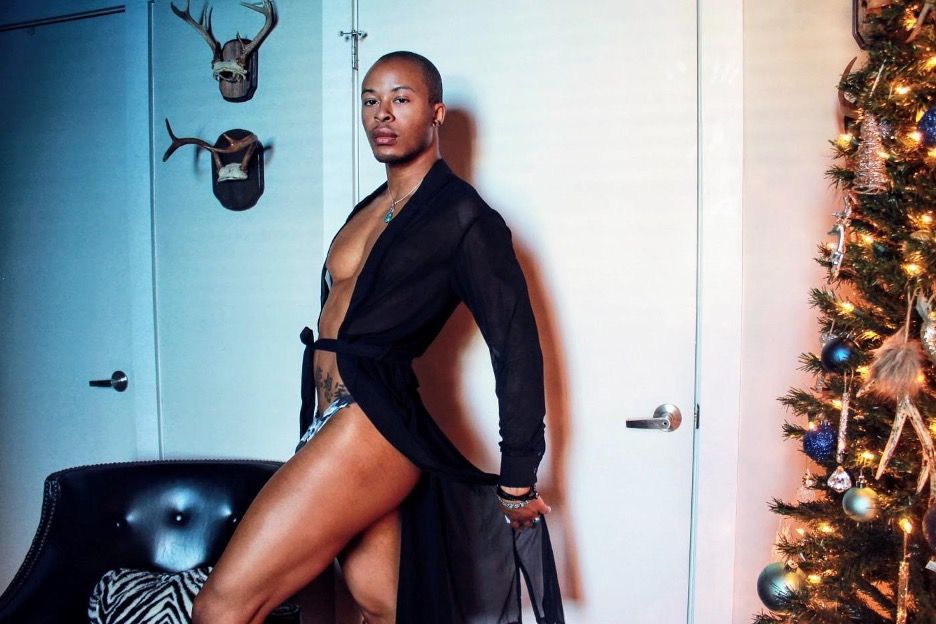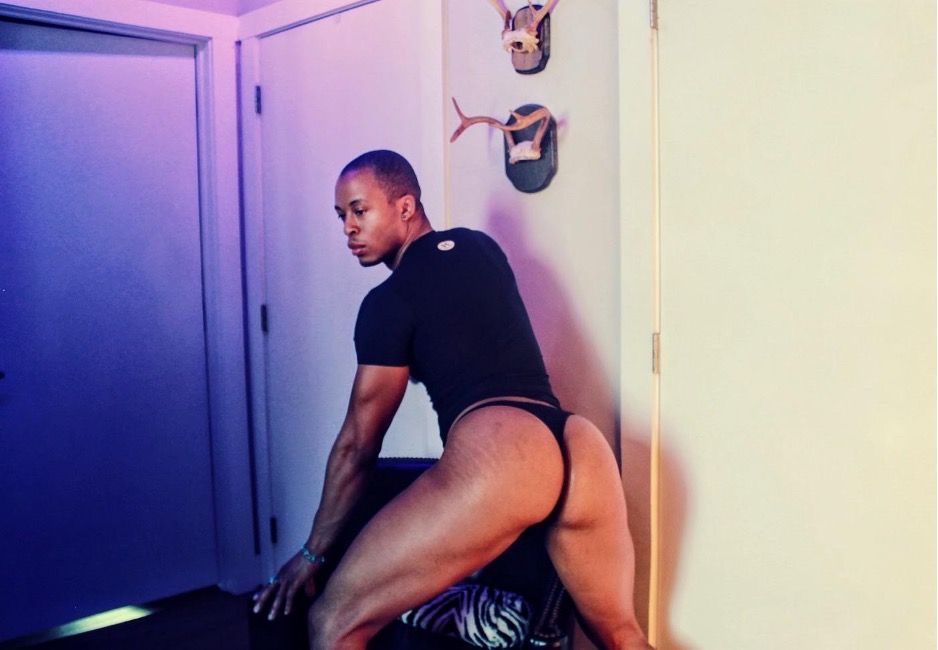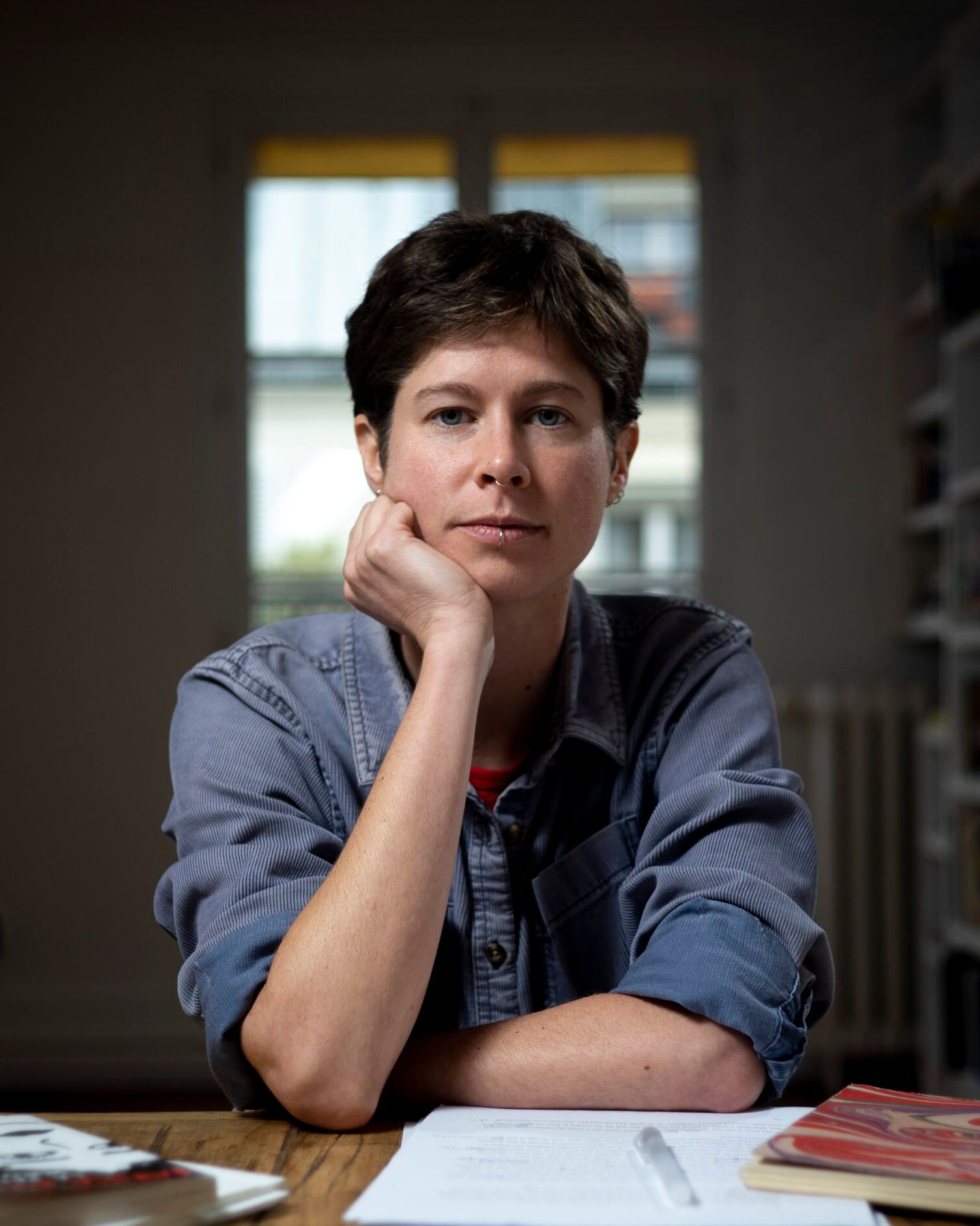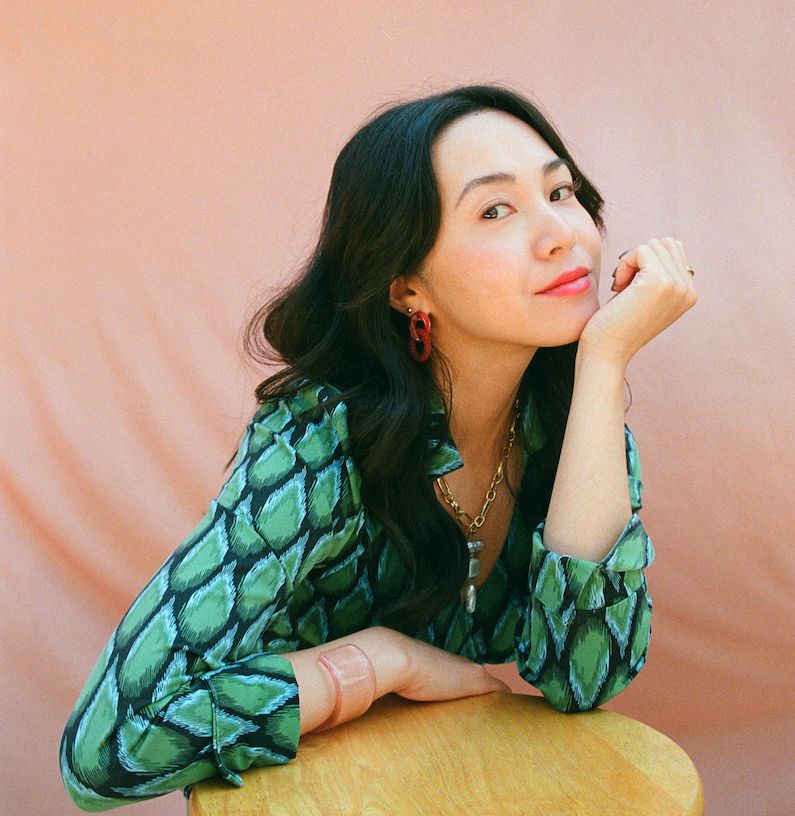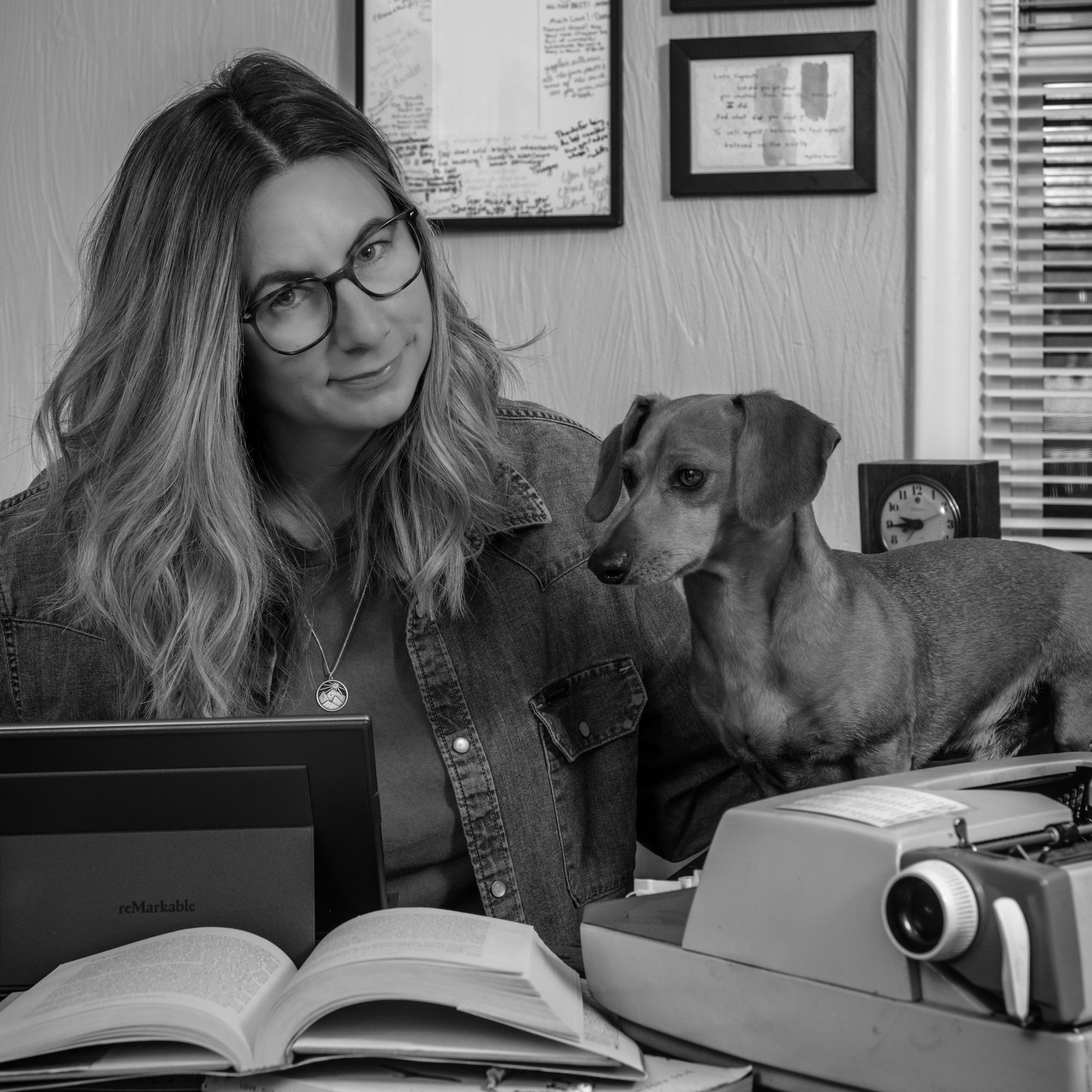It is another Sunday afternoon, the permanent gray of late winter still painting the skylights above the museum’s entrance hall, and I am searching for still lifes. Because I have decided to change my life.
Mine is a still life. Was. Has been. Had been. Will be. Will have been. Any conjugation the same.
Here today, in the present tense, I understand now: The S stands for still in the initialism HSV.
Still for immobile. Unmoving. The three clustered consonants stubborn, the same way the clustered sores may permanently recur, a stain I cannot erase on the background of my vaginal canvas. The virus steady inside my nerves for more than a thousand days now, despite the turning of the years, the coming of my fourth decade. The ancient cells stationary inside the fibers of my body.
Men’s bodies have drawn back an imperceptible distance, attraction turning to apprehension. “Is that the one that doesn’t go away?” They ask. Have asked. Will ask. The questions continuing. As in the adverb form, in the second or third definition, of the word still: “the continuance of a condition.”
“Quiet”—the second or third adjectival meaning. Though I cannot stay silent; I must say the word: Herpes. The term, the revelation, is not a shock anymore. Just a tired repetition. “So I have herpes.” The announcement new to each new man. The first time a surprise on each first or second date. The same to me. Then silence.
My phone stays silent, still, in my hand, no vibration or chime to alter the muteness of the museum, as I lift the screen for a still photograph of each still life, then click back to black. It has lit up lately with emails from recruiters, offering better careers. With acceptances to graduate schools, promising different futures. With maps of new cities where I turned down virtual streets and imagined living on each tree-lined, sunshiny block. But the flash of the one message I most want has not brightened my phone for three days now, two weeks since the first man in nearly two years dared to touch his skin to mine. After the brush of his finger. The watercolor of his tongue. Finally the white glaze of his cum. But he has gone silent now.
The reason is simple, I think. It is the herpes. The S in HSV standing, in actuality, for simplex. Of the order Herpesvirales. In the genus simplexvirus. Simplex a strange designation, it seemed to me in those long-ago days of initial complexities: The positive HSV-2 swab from my skin. The negative, not-yet-developed antibodies in the maroon tubes of my blood. The prescription for lifelong pills. The doctor’s prophecies about future outbreaks. The admonitions about unpredictable triggers, such as the pressure of sex, or the chemicals of menstrual blood, or just the silk caress of an undergarment. And then the greatest complication: The anger. At the virus. At myself. At my careless prior partner who rubbed away his sore, dismissed it as a simple irritation, and then made it mine with a single stroke.
“Single”—the first definition of simplex. Perhaps the monopartite genome of the herpes virus, with its single molecule of nucleic acid, gave herpes this middle name. From Latin. Literally “one-fold.” A designation that echoes with the approximate rhyme, the assonance, of alone.
I was still with him, the man who has gone silent now, the morning after in my bed, in that hesitation before the inevitable heaving up and leaving, that untangling of limbs and sheets and feelings, when he punctured the stillness. “I guess I should go get a herpes test this week.” My back lurched away naked from his skin. “Oh no,” I told him. “It won’t show yet in the blood. Maybe not for months. But you will know,” I promised of any potential imminent infection. Within days, he would have his answer: No. Nothing. Or Yes. An impasto of sores across the shaft.
His hand had grabbed at his shaft somewhere behind me the prior night. In that ecstatic second repetition of first-night sex. His thrusts coming to abrupt, sudden cessation. My breasts and stomach hung suspended. Stilled. His fingers clutched for the rubber. “We used condoms,” I reminded him in the morning, to counter his concerns. But had the thin film ripped, slipped? “For a minute, it felt too good,” he said. One instant of trance transformed into terror, like a fresh peach mirroring its eerie double—the fleshless cranium—in any still life with skull. The painting’s background as murky as my bedroom’s drunk, fumbling dark.
In the light of morning, though, he reached for another condom. “Don’t move,” he instructed as he rolled it up, slid it in. Then out. Stopped. A frantic inspection between his legs. His fingers tugging up at the rolled-down edge. At the top inch of skin exposed to the poisonous acrylic of my discharge. “Get a new one?” I suggested. But he stayed still.
Still waiting, maybe, now, for the first faint intimations of infection. The same way I am waiting, today, for his message. For an action verb. Write. Call. Visit. My body static. The embodiment of the being verb.
So today is only for still lifes.
I buy a museum membership for other fantasized future days. For maybe a meander across the clean lines of the modern wing, someday after hands have meandered across my skin, undaunted by the red splatters of the sores. Or for perhaps a peek at the muscled sculptures of the ancient males, some morning after I have just touched such a torso.
Bodies cluster musky, sweaty today about A Sunday on La Grande Jatte. The spectators in the skylit gallery mirroring the clusters of sunbathers in the painting. The air inside bright, light—as buoyant as the puppy’s leap, or the bustled woman’s parasol. But my place is not with these action verbs. And I turn away. From the strolling of Seurat’s Sunday pedestrians. The leaping of Degas’ dancers. The lounging of a lady’s brazen naked backside.
Instead: The peaches the pears the asparagus the lemons the grapes the bread the wine. There they are. Motionless. In the still, windowless dim of distant, deserted galleries. Where the walls are blue. The frames are gold. With the stagnation of the being verb. The static Is. Am. Are. Was. Were.
I am acting. Changing my life. Quitting my job. Going to grad school. Moving to a new city. Insert whatever action here. Because I cannot find love.
“What’s really important in life?” a radio show host will ask a few mornings afterward of some author recounting her husband’s illness, then her own. “Love,” I will say aloud, stilling the lipstick in the bathroom mirror. “Well, love,” she will echo. “No question about it.” And the tears will smear the black paint outlining my eyes.
Even if I redraw the outlines of my career or my city or my life, the herpes, like the still lifes in the museum’s permanent collection, will remain. Unchanged.
“Don’t tell anyone you have herpes in your new grad program,” my mother has instructed. As if concealment were a cure.
I told him, the man who has gone silent now, on the second date: still life with café table and cocktails. After a sip, I slipped in the detail of herpes, during one of those regular references to past relationships. His response just a silent nod. A simple I’m sorry. His concern less the herpes, he told me later, than my seeming obsession with the infectious ex. “You’re still into him,” he insisted. But he did not understand. My ex is still in me. Was. Will be. His infected cells immovable, merged with mine.
I tried to tell him, the man who had gone silent, the morning after in my bed—in a jumbled rush, faster and faster, more and more agitated, like a distorted orgasm—of the virus’s sly seduction. Of my prior partner’s preceding panel of negative tests. Of his pleas against unnecessary protection. Then the faint pain, like the light vertical line down the center of an otherwise solid black canvas of a Clyfford Still. Its broadening to a jagged bar of agony. The desperate ice in the blackened night. In the harsh bathroom light, my frantic photographs in the mirror, upside down, backside out, studying the folded gradations of red, purple, white, the way a curator examines a canvas for unnoticed secrets, revelations. Then the next day, the instant identification by the nurse, her immediate designation of the lesion, like an expert recognizing a forgotten Picasso. The drawings of the virus unmistakable. Distinct. My partner’s continued accusations of some other source of my infection, though his was the only skin that mine had touched for years, while I had viewed his rotating collection of online photographs from his trips to European museums, where he had taken his countless other casual lovers for some sort of foreplay, rushing through the rooms of naked paintings. No stopping for the still lifes. No stopping either for my lifelong diagnosis. His ticket already scheduled for his urgent return to distant, limitless galleries of other nudes.
“OK OK OK OK,” the man, no longer silent, interrupted. His hand calming my bare arm. “You don’t have to tell me,” he said. And my mouth went still.
Maybe my words were unnecessary. Unimportant. Maybe the why and how did not matter. No difference what events, what action verbs had turned into herpes. Maybe all that matters now is what is.
But I linger over the words on the placards more than the paintings. After the static matter-of-fact of the images … an attempt at language, at explanation.
In the 18th century, “still life was considered … the lowest order in the artistic hierarchy of the male-dominated French Royal Academy,” states the block of text relegated to the bottom right, beneath Anne Vallayer-Coster’s Still Life with Flowers, Bird’s Nest, and Pouch. “Because they did not involve human subject matter, still life and landscape were considered lowly," I will learn when I return home, after the museum’s close, to continue my search through the late-night gallery of my laptop, perusing far-away museums, like the Tate, with their collections of still lifes. That lowly form. Unlike the higher-ranked history painting, portraiture, and scenes of everyday life. Which centered, celebrated the body. So, then: The body’s absence—or infection or rejection—is but a substandard still life.
This disembodied genre, “[p]artly because it did not require study of the nude figure,” the placard continues, “was considered the most suitable genre of painting for women artists.” A suitable genre for a woman with herpes, too. Whose nude figure is not requested or required.
Rather: The single wine glass. The upright goblet, in place of the curves of the vertical female form. The lonely, empty teacup. The depleted metal sugar bowl. Solitary items. No matching pairs converging on this Still Life: Corner of a Table, by Henri Fantin-Latour. “This canvas relates to [his] largest and most famous painting of the decade,” the placard informs. “An immense composition that includes detailed portraits of several major young Parisian poets and writers.” But those bodies are missing here. Continuing the ancient tradition of the still life, which, until the Renaissance, “exist[ed] primarily as a subsidiary element in a composition,” Britannica confirms. Nothing in and of itself. A part of a larger, more important work. The way an individual becomes part of the larger art form of a pair.
Couples glide by, smiling at each other. Young men in jackets, girls in short skirts. Holding hands, holding eyes. Hardly seeing the art. Moving, ever the action verb, past the still lifes. Stepping together into their Sunday afternoon. Toward their Sunday evening drinks. Into their summer engagement, their spring wedding, dancing hand in hand down the aisle, as long and promising as these gallery halls.
I stand still before each still life for a long while. When I turn, a lone figure, waiting for an encounter with the canvas, is rare. But at the landscape paintings to the left and to the right, other visitors, couples, groups, point their phone cameras for a clicking instant. Then move on together into their future.
I, too, want future plans. “Why not invite him over?” my mother has suggested. Invite the silent man home. Or here. To the museum.
He has taken dates to museums before. Exhibited the clean waters of the aquarium in his recent online photographs, with a clean-faced girl. Her skin clear, cleansed of any paint. “How would that work,” I asked him once, “to date us simultaneously? To maybe expose her to herpes?” Silence his reply. And now I am silent, reluctant to remind him of my infection, which probably fogs his head like the heavy, pressing air about the popular pieces, like La Grande Jatte. Here in my kind of museum. Stained with permanent paint.
“I want to be sure that I would stay,” I told him on the sofa, in one of those early desperate stretches of caresses, limbs twisting, clothes contorting, hands grasping at zippers, then hems, then skin. When his fingers stilled. “I could make you even wilder,” he promised, “with my tongue. If you would let me,” he said. I separated. Sat up. Blocked the air between us with my palm. “I want to be sure I could be with you for life if I gave you a lifelong disease,” I said. What I had wanted after my own infection. What I had been denied. “That’s sweet,” was his response. Or maybe the designation was kind. Or nice. “But not necessary,” he said. Still, only his fingers crossed my skin. All night long.
The stigma of herpes persists like ancient paintings. Society agreeing on the meaning of the disease the way artists, critics, scholars seem to somehow concur on conventions of genre or technique. But beside The Basket of Apples, with its tilting spillage, its shifting table, the curator marvels, maybe chides: “Cezanne was trying to construct a composition outside the bounds of conventional modeling and perspective.” Trying. Only an attempt.
Could any effort defy the bounds of conventional perspective on herpes? Dirty. Diseased. Silent. Ostracized. Alone. Society’s prescribed patterns for how to arrange a still life. A stigma life. Can a still life still find a new, inventive form?
I transform herpes into words every one or two years. Attempt an essay, like a kind of diary entry, I guess. Or like Monet’s repetition of his bridge. Trying again and again to view the same subject in different lights, at different times, with different eyes. But the bridge stays the same. A sad, static series of frowns. Yes, the perspective lengthens. The colors change. Still the structure remains. It is. Was. Will be.
In the stillness, my words are some sort of action. Defying the expectation of silence and shame mandated by society. Yet perhaps my repetitive essaying is perpetuating the stigma. Bemoaning the hopelessness of this affliction. Offering justification to avoid the infection, shun the infected. Instead of demonstrating how ridiculous the world’s reaction. How outsized its response for such a tiny virus. A frame much too large for the painting.
When my life is still, when no activation stirs the virus sleeping in my nerves, I forget I even have it. Forget to see myself as contaminated. My body the same as before. Until a man goes silent after I say the word.
I pen an angry epistle to my prior partner every four or five months. This morning, the text almost identical to the one before. “You have completely destroyed my life,” I repeat like an incantation. Berate him with variations of the same hateful names. The vocabulary limited to the four letters of expletives. One word misspelled, I notice now. One or two taps, and the message is unsent. Painted over with blank white. Then the screen slumps black, static in my hand. No words can offer any change anyhow.
Perhaps I am too tired to change. To take grand action: Move. Go back to school. Remake my life. The overcast gray of this late winter Sunday has settled into my mind. How can I change something that cannot be changed?
“You should make [it] funny,” my best friend texted once, exasperated, when I wrote of herpes again and again. Make a joke. Minimize. Simplify. The uninfected so unaccustomed to sexual rejection: “What if you just got on top of him?” she suggested when the man who has gone silent now would give me only his fingers, only his now-silent tongue.
“I do want you to fuck me,” I had whispered in the 4:00 a.m. darkness of his bed, the first night his lips parted my legs. His mouth closed afterward against the pillow. “Maybe in the morning,” he mumbled. But when the matte gray of November daybreak painted his bedroom window, he did not reach for my skin. And my legs were still closed, naked and cold in last night’s skimpy skirt, as I waited, mute, on his gray sofa in the gray light for the taxicab back home.
When he returned to my home, after months of uncertainty, of trial trysts with other less complex women, like his clean-faced companion at the aquarium, he took me to bed. My legs spread open. His body above mine. “I want you to fuck me,” I said. “Mmmhmm,” he responded, his head descending instead. His lips humming against my skin. Just his tongue offered. And as he thrust later against mine, I thought how wasted the energy, the pleasure, on only my mouth. The way paintings are wasted in storage beneath art museums. Still there. Still beautiful. Never realizing their real purpose, their full possibility.
The full palette of the senses is mixed into the still lifes in the quiet galleries. The metallic clink of the tipped pitcher. The thick perfume of the flower. The sharp sweetness of the plum. But this visual feast appeals the most to the skin. To touch. Which can transmit pleasure—or infection. Can make or destroy. And so perhaps the reach is risky in Jean-Baptiste Oudry’s Still Life with Monkey, Fruit, and Flowers, as the creature’s eyes dart, while his hand grasps furtively for the grapes. Taut, rubbery. The peaches nearby fuzzy. The melon slice below sticky, seeds slippery. Begging not just to be observed or admired. But to be touched.
Touch is prohibited here with ropes, panels, guards, alarms. But all is still when a young man extends his arm and palms a smooth sculpture, a figure, in the center of the gallery. One glance toward the vacant-eyed corner guard. Then the offender saunters on. I avert my gaze, pretend I do not see. For who has not also felt the forbidden urge to feel?
“I want to fuck you.” The man who has gone silent now had murmured, husky, drunk, in my bedroom’s dark. “Mmmm,” I had agreed, lifting my head from between his legs. “I want you to.” Merely my line of dialogue in the linguistic fantasy. But this time his response was a muffled shuffling of his clothes heaped beside the bed. And then he was grasping at the jeans, jingling the belt buckle. Fumbling for the pocket, crackling the wrapper. Action verbs. Until the scent of rubber, like an airborne virus, a reminder of the risk, infected the still heat. In a fever, an impossible dream, I got on top of him. My lips open in surprise.
I did not know what to say in the days afterward. After the torn, tugged condoms, the panicked plans for a test. My phone screen blank, the way a placard beside a painting may sometimes state nothing but a title and a date. The curator at a loss for a description, for words. “Any sores?” I might ask. Or maybe a vaguer inquiry: “How are you doing?” As if he could do anything as he awaited his fate. Before its possible arrival, I rushed to send him some token, some sort of distraction. In the middle of his fears, the quickest gift—a linked transmission to an electronic book. “A little something for you on this Sunday night to fight the scaries,” I texted. The S standing for scary in HSV.
“I’ll start to take daily Valtrex,” I drafted. “That is, if things aren’t too complicated and you want to have sex again. I mean, your cock inside me was damn good.” A tentative text. I pasted the preview to my best friend. “It’s fun and sexy!” she said. “It’s something I would say. Other than the complicated part.”
Complicated. Complex. Herpes complex virus. “I feel dirty, like a walking vector,” I replied to her. “You’re not,” she said. “You’re fine, and he’s fine.” A present tense proclamation. “He’s just a little nervous. I’m sure everything will be fine.” Will be. Is. Was.
“It’s OK,” he had said the morning after, when my naked body, pale and deflated, slumped in the tangled blankets like the unfinished condoms twisted and limp still on the floor. The bedroom a messy impressionist landscape of tossed pillows, ripped foils, slipped, rolling sheets. He paused on the mattress edge, took my naked face—wiped clean by the action of the night—in his hand, and held my eyes. “It’s OK,” he said. “I thought about this a lot. I knew what I was doing. I wanted to be intimate with you.”
He had thought, read, researched, talked with friends, he will tell me later. Studied the descriptions, the symptoms, the statistics the way I first studied the stipple of my lesions. Resigned himself to exposure when his lips first brushed my skin. “Genital herpes can transmit to the mouth, I read,” he will tell me. “That’s rare,” I will resist, insisting how still, how satisfied HSV-2 is inside the sacral ganglia at the spine’s lower end. Rarely leaping, like Degas’ dancers, to inhabit the face’s trigeminal nerve. Rarely adventurous enough to venture out from its still life.
“I almost never get outbreaks,” I have reassured hesitant men. “It’s really not a big deal,” I have lamented of the persistent stigma around the sores. As if, beside each clustered, oozing wound in the internet’s vast gallery of herpes photographs, an explanatory placard could be erected to counteract the images with calming numbers. “[W]omen with genital HSV who aren’t having active outbreaks run a 4 percent risk of transmitting the virus to a male partner during intercourse,” an article or two promise. “[C]ondom use reduced per-act risk of transmission [of HSV-2 …] from women to men by 65%,” one study concludes. “[V]alacyclovir can reduce the transmission of genital herpes to uninfected partners by 50 percent,” another summary of research calculates. I multiply the figures, my math as shaky as my fingers on my phone’s calculator, as if to list on the placard the artwork’s final price: 0.7 percent risk. 99.3 percent risk-free.
“It’s like I’m trying to sell a disease,” I have moaned to my mother. “But it’s a disease. There are no upsides to a disease.” Of course, I am meant to be the upside. The return on investment, the benefit for the substantial cost. But how can one night, or even a thousand nights with me, offset a lifetime of disease.
Beyond just the crusted vesicles are the complications, clustered on countless websites below sickening subtitles: Increased susceptibility to HIV. Frequent, severe recurrence in the immunocompromised. Serious conditions, including brain infection. And under the subtitle “Prevention,” the only antidotes to transmitting the pain are painful disclosure conversations, consistent condom use, outbreak-long abstinence. While awaiting these horrors, is the man who has gone silent now gaping silently at each repeated fact in his phone’s frame? The facts like the rotting animal carcasses that draw a museum goer’s gaze away from the pleasant peaches and plums of the adjacent still lifes, which are as benign as the rest of the herpes statistics and attributes: Its mild or often asymptomatic presentation. Its decreased severity over time. Its blasé ubiquity, with an estimated 13 percent of 15-to 49-year-olds positive.
“All negative or non-reactive,” he announced a week later—a week ago now—beside me on my sofa, as he scrolled through his blood test results floating lightly over his phone screen, held up for me to see, to ease my fear of additional infection with my heightened vulnerability. Shared relief then in the clink of our drinks, creamy white. As white as the tampon string between my later naked legs. Which he did not touch all night. Though four evenings before, in response to my tentative text, he had offered a promise: “I think you can plan for me to be inside you again.” So was he afraid now of my blood smearing his skin? Or of my virus, like permanent oil paint, staining his life? Unwilling to risk so quickly the reassurance of those still clean test results. To turn them bloody with a red “Positive.”
“You don’t want to be with someone who’s OK with it,” my mother has warned. A perverse paradox. Acceptance perhaps indicative of the reckless. The irresponsible. The likely carriers of other plagues.
Invisible, undetected at first, are the flies, carriers of plagues in their every defecation after their feasts of liquid decay, in Louise Moillon’s Still Life with a Basket of Fruit and a Bunch of Asparagus. The stalks seem a healthy green—matching the shelled peas and the clumped grapes, as plump as the purple plums. All contaminated, upon a closer look, by hairy wings. Flying vectors of bacteria. Infecting the paint. Marring the entire composition. Or: At a distance from the canvas, could one stand back and still be transported by the beauty of the whole, compensatory with its abundance of peaches and greenery?
Yet inherent in even the freshest of fruits is the symbol—the anticipation, the certainty—of decay. Every still life a memento mori, a vanitas, even absent an hourglass or skull. The flesh of the mushy fruit soon to be rotting on the table. Yes, their brief, vibrant aliveness is preserved forever in the depiction; yet it is forever susceptible to impending, inevitable decomposition after the artist lays her brush down.
The final painting that I photograph—lifting my phone, still silent as the gallery, emptying now at the museum’s close—is empty of any life. Shells of oysters sucked dead and dry. Pewter dishes stacked, haphazard. A chalice half-drained. Pitcher emptied. Tarnished vessel toppled over with a hollow thud, like a bloated corpse in the center of the tableau. A dead still life. Another paradox.
No one can decide if viruses are alive or dead. “[V]iruses today are thought of as being in a gray area between living and nonliving,” Scientific American explains. Though often considered dead because they cannot on their own metabolize, replicate. The absence of the action verb. Dormant when alone, when uncoupled with an active, living partner/host. Inert. Still.
Can anyone decide if still lifes are alive or dead? The fruit ripe, wet, round, juicy. Yet also static, flat, two-dimensional. Inedible dried paint against the salivating tongue.
I cannot decide if I am alive or dead.
Completely destroyed life. My text of this morning, though I attempted to delete it, will be read anyhow, somehow, by my prior partner. Who will respond days later: “Glad you changed your mind about that message and deleted it." But my mind, my life, did not, does not, will not change, I will explain. The virus cannot be deleted like the typo.
He will type an offer to return to me, to be together to make amends. “Or maybe that ship has sailed,” he will say. Like Winslow Homer’s seascapes. The waves ever moving, tossing, progressing. Action verbs all. Like the action he took when he left me, still with the weeping sores, to move across the ocean to Berlin. Then Kyiv. Now Sicily, per his last photograph posted online: still life with cocktail on balcony overlooking landscape of ancient ruins on Italian isle. “This ship hasn’t sailed,” I will reply. “You have sunk it.” Uncertain if the metaphor is still the relationship. Or my life. “OK,” his only reply. Then stillness.
I will attempt action tomorrow morning. My animated text to the man who has gone silent now like an invitation to an art show, or a party. Which he will at last accept two weeks later. When he will again reach for the shiny-foiled condom, like a wrapped gift, and I will silence my urge to say thank you, thank you, thank you. The proper response to a present.
He will offer it only three times. Like dividing the canvas of us per the rule of thirds. But the last two sections—the last two attempts after the heedlessness of the first time, when passion blotted out the apprehension of any aftermath—will be only half-finished. Pencil sketches, started for a minute or two, then discarded. Crumpled and tossed, like the empty condoms, on the floor.
How crumpled and withered, I will notice afterward, are the peppers in Pierre-August Renoir’s Fruits of the Midi. Their red skin collapsed into vaginal folds, the flesh and seeds inside presumably papery dry. “I’m worried it’s going to be another two years before I have sex again,” I will tell my best friend afterward. The phallic purple eggplant, solid, engorged, next to the red pepper. Yet forever an inch away.
“Wait, let me feel that cock,” I will say, slowing, holding, as if my body on top of him somehow understands, some premonition written within the inky darkness above his bed, that this is, was, will be the last time. And I should try to paint it on the walls inside my mind.
“There’s like this wall,” he will shout weeks later, when I ask for more. More sex. More time. More commitment. “I just can’t be in a relationship,” he will say, his huge frame standing, gesticulating in the center of my living room, as if the walls are closing in, while I slump, small, on the sofa against the wall. “There’s this wall in my head that’s stopping me,” he will repeat. Like the wall of a condom. Which should never really be removed, no matter how long our relationship. Who would commit to such an imitation of intimacy, forever separated by a thin film of rubber, like the glass covering, obscuring a beautiful painting. The interruption between the desire and the consummation. “Don’t go anywhere,” he had said each time he had left my bed, crossed toward the dresser for the condom. And I had lain, waiting, uncertain how to compose my body. To lie back like a Titian nude? Or curled, inert, like the still life pepper. Still life with condom wrapper.
“It’s not the herpes,” he will insist. “I was with you multiple times,” he will cite as evidence. Yet instead of future bedroom rendezvous, he will now offer coffee meetings, propose “something other” than sex. Just friends, he will suggest. An appraiser’s re-evaluation of the art.
He will consider my counteroffer—the continuation of casual relations—weeks later in a midnight conversation composed of my loud pleas, like primary colors mixed with the muted hues of his slurred evasions, diluted with gin from the bar cart in his living room. Then in his bedroom afterward, beneath the covers, our skin will stay separated by his T-shirt and shorts, by my heavy polyester dress. Like cloth covering, protecting an unused canvas from the dust and debris in a studio. And when the room will swirl with sweaty heat later during our fitful sleep, when I will pull my clothing up, off my legs and breasts, only his fingers will reach down.
But perhaps this should be pleasure enough. And casual commitment enough. Satisfaction within limits. To make the best of unchangeable circumstances within the limits of herpes. As within the limits of the still life, that once-regarded lowliest of genres. “Nonetheless,” the curator states beside Still Life with Flowers, Bird’s Nest, and Pouch, “Vallayer-Coster achieved critical acclaim through her virtuosity in this genre.” Accomplishment still possible within. If not beyond.
I will reach beyond to the future, to try to confirm in the morning that our status is, was, will be still casual moving forward (another paradox: stillness moving). But maybe the risk of even casual is not worth the quick pleasure that could transmit the infection, which would thwart his future rendezvous, future relationships. Because he will shake his head beside me on the gray sofa while I wait again for the taxicab. “Let’s talk more,” he will say. Then silence.
For weeks, the silence will be the same as today’s, as I wait for his text in these still galleries. But maybe in waiting comes revelation. Maybe after my frantic fantasies of change—for a new city or an additional degree; for different gallery wall colors or thicker frames—maybe now can come a steady, still examination of the unchanging paintings. Of what is. Studying the still lifes, my still life, the same way the painters studied the objects depicted therein. “[A] detailed observation of subject matter,” one BBC article characterizes the genre during the 18th century, during “an increased interest in the natural sciences.”
What if, in its natural state, my still life observed more closely might reveal previously unseen beauty: A drop of dew on a grape. A gradation of auburn on a peach’s skin. Something missed, unappreciated in the sameness of my routine: same (yet comfortable) apartment, same (yet uncomplicated) job, same (yet friendly) boss, same (yet vivacious) best friend. Until maybe I will find my still life has been, is, will be a detail of a larger painting, like Fantin-Latour’s Still Life: Corner of a Table, surrounded by figures, by love.
I will post a photo of that table corner—the wineglass single (yet full, I notice now)—on the background of my cubicle’s wide computer screen. And I will enlarge each of the still lifes I have stilled within my phone, my fingers stretching across the screen to reveal each detail. The way they once caressed the silent man’s skin, his body substantial, stretched across my bed. A presence now dissolved into only texts, sent long ago. Which my fingers will reopen, scroll, enlarge, examine—for hidden messages beneath the words, like hidden images beneath a painted canvas. Until in the final blank white of his silence, I will understand: He is gone.
Another unwanted, unchosen end. The subjects of the painting of my life selected without my consent—by fate, by herpes. The slack-jawed skull. The soured lemons. The rotted pears.
Yet these inanimate objects are “carefully arranged and observed by an artist,” one museum website notes when I later visit its virtual gallery and its instructions for an “Art-Making Activity.” “[A]rrange your own still life,” it suggests. No matter the objects you are given, you can still make something beautiful of them. The New World Encyclopedia agrees: “[S]till life paintings give the artist added flexibility in the arrangement of design elements within a composition than do paintings of other types of subjects such as landscape or portraiture.”
So is this, the still life, in fact the superior form? Lending, celebrating control. A triumph over fate. The ladyfingers stacked, by careful fingers, in the back of Cezanne’s canvas, I notice now. The plants and fruits of still lifes not haphazard, tossed by the whims of nature, but set, organized, composed. A kind of action within the stillness.
Maybe the same way a being verb can take a kind of action within a verbal phrase, when the verb is transformed into a helping verb for an action verb. The being verb still there, static, like the herpes, but now arranged in a secondary, supporting role. As in: I am arranging. I am acting.
I will take action. Text him goodbye. Force the subtext of his silence into words. “So I obviously have figured out based on the last couple weeks of silence that you don’t want to see each other again.” My message a wild slashing of action verbs set against his reply: “It’s best to just let things be between us.” All being verbs. All still. The portrait of us no longer being painted.
In the darkness of my bedroom in the weeks afterward, the mattress, like an unused canvas, will stay draped with the same solid brown cover, unchanged by any imprint of his body. The bed returned to the same emptiness, the pillows stained with the same salt. No matter how much I might try to change my life.
Still life not with, but without.
Yet perhaps the still life of brown bedspread and scarlet sores has the same merit, the same worth, as the action verbs of the streaking banner and horses of a historical scene, or the rolling hills and waves of a landscape. Why not give my still life just as much care as a life shaped like a bridge or a lily pond? “Monet treated this still life with the same attention to the complex interactions between light and color found in his landscape paintings,” the curator observes on the placard beside Apples and Grapes. The brushstrokes the same for the folds of the tablecloth as for the ripples of water in the sun.
I will be searching for a waterfall when I enter the museum next, after I have at last committed to graduate school the coming autumn. Early summer will be painting the skylights with cloudless blue. And in a blue-lit, UV-lit room awash in misty purple and blue, like a dark, mysterious aquarium, Senju’s panels of light, like streams of ever-flowing hope, will glow. A temporary exhibit. A fleeting exhilaration of movement, of possibility. And pacing about the installation, I will reach forward toward the ceaseless change.
When I leave, I will glimpse a still life. Unexpected. Waiting for me on a far gallery wall. A Cezanne that I have never seen. Upright bottles and pots. Small assembly of peaches. Two stationary spoons. But as I stand silently before it, I will feel a quiet recognition. A calm comfort. Because it is. Was. Has been. Had been. Will be. The stillness even more beautiful than change.
Andrea Bianchi
Author
Andrea Bianchi lives in Chicago. Her essays have appeared in Witness, New Ohio Review, The Rumpus, CutBank, Epiphany, The Smart Set, New South, and elsewhere. Her writing was also selected as a notable essay in The Best American Essays 2021. She is pursuing an MFA+MA in the Litowitz Creative Writing Program at Northwestern University. writingandrea.com (http://writingandrea.com/)


